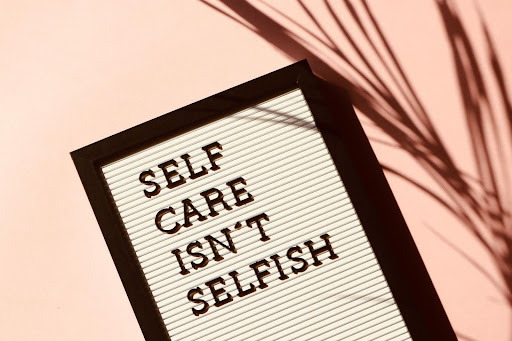Over the years, there have been improvements in breaking the stigmas our society holds against mental health. Despite this, many individuals are still hesitant to seek the help they need. Unfortunately, there are misconceptions that people have about mental health that are not accurate. Some incorrectly believe that those struggling are weak, lazy, or crazy. They also can think that people can “choose” at any point to stop struggling. All of these misconceptions are false and unhelpful to people facing mental health issues. Having open conversations is the best way to reduce stigmas. By understanding and actively addressing these stigmas, we can create a supportive community that allows everyone to feel comfortable discussing mental health.
What is Mental Health?
Mental health encompasses our emotional, psychological, and social well-being. It affects all areas of our lives and how we think, feel and act. It also influences our ability to handle stress, relate to others, and make choices. It’s important to remember that mental health is just as vital to our overall well-being as physical health.
Common Misconceptions
Misconceptions are often the result of people not having proper education about mental health. While these misconceptions are often false, they can impact those struggling.
Mental Health Issues Are Rare
These issues are unfortunately not rare and are more common than people believe. One in five adults experiences a mental health condition each year. According to the World Health Organization (WHO), 970 million people worldwide struggled with mental health disorders in 2019.
Mental Illness Equal Weakness
Mental health conditions are medical concerns, not character flaws. It is incredibly challenging for people struggling to reach out for help, often because of stigmas like the one we listed above. It’s important to remember that seeking help is not weak, it’s the strongest choice the person can make.
Mental Health Problems are Permanent
Many people recover fully or manage their conditions effectively through a proper combination of treatments. Some treatment options include psychotherapy, medication, and lifestyle changes. Lifestyle changes include diet, sleep, exercise, and social schedules. While they can feel permanent, mental health problems are not forever. Recovery is possible, and people struggling deserve to live life with decreased symptoms.
The Impact of Mental Health Stigma
Barriers to Seeking Help

Stigmas are incredibly damaging to people who struggle with their mental health. Unfortunately, these stigmas lead to shame and avoidance of getting help. They can also make the person feel embarrassed and not want to share what they are going through with others. As the person continues to avoid getting help, their untreated issues will likely get worse as time goes on. The longer that someone does not get help for their mental health struggles, the harder the recovery process will be. According to psychiatry.org, more than half of people who struggle with mental illness do not receive any treatment at all.
Social Isolation
When people struggle with mental health and its stigma, they may distance themselves from their friends and family. They may feel ashamed and even fear that their loved ones also believe in these stigmas. Social isolation can make these conditions worse and lead to heightened levels of anxiety and depression. When dealing with mental health issues, it’s important to remember that social networks are necessary (and this doesn’t mean social media). We are not meant to navigate life alone, and this is even more true for people dealing with mental health issues. Maintaining social activities is important.
Hindrance to Recovery
Stigmas around mental health can have a negative effect on a person’s recovery. Internalized stigmas can lower self-esteem and confidence. These stigmas can also affect an individual’s recovery because they might cause them to skip therapy or their medications. These habits will in turn hinder the progress of the recovery process.
The Importance of Open Conversations
Having open conversations about is the best way to break stigmas in your day-to-day life. You never know who needs to hear positive stories about mental health.
Normalizing Discussions
As we mentioned previously, the best way to fight mental health stigmas is to have open conversations about mental health whenever possible. Conversations like this reduce fear and misconceptions about mental illness, treatments, and what recovery looks like. Because everyone has unique communities they belong to, it’s important to bring these conversations to as many groups as possible. If you are in a conversation that starts to discuss stigmas against mental health, you can use this as an opportunity to educate those in your circle.
Promoting Empathy and Understanding
It’s important to lead with empathy and understanding when having open conversations. Knowledge fosters compassion. And compassion leads to fewer people struggling. If you decide to partake in these conversations, it’s important to cultivate an environment of active listening to those who choose to share their experiences. We all have the responsibility to bring empathy and understanding of mental health to the communities we are a part of.
The Role of Media and Education
Media affects people’s perception of mental health and what it looks like for different people. It’s important to remember this when having open conversations. We can also help by advocating for more education and availability of therapy in schools.
How to Break the Stigma
We can all work together to break the stigmas. It doesn’t take much to get started. Small changes add up to make big changes in changing how others view mental health.
Educate Yourself and Others
When working towards breaking mental health stigmas it’s important to have accurate information, educating both yourself and others on the facts. It’s important to do proper research to make sure your facts are from credible sources. Mental health research is constantly changing and is important to keep up with. If you are discussing mental health stigmas and notice someone gets something incorrect there are ways to educate them; gently correct any misconceptions. Have an open, polite conversation, but understand that every situation must be handled according to the person. You can also participate in or host educational events; however, you don’t have to plan an event to educate others. You can do so in your daily life or volunteer for an existing event.
Use Respectful Language
When having conversations about mental health, it’s important to use respectful language to avoid offending others or hurting their feelings. An important part of respectful language is using person-first language. Person-first language in this sense would be used when referring to someone’s diagnosis. For example, you would say “person with schizophrenia” instead of “schizophrenic.” Avoid labels that may make people feel like their struggles are permanent. It’s also helpful to avoid terms that might carry negative connotations. If you are unsure if something will offend, it’s probably best to find another way to say it. Language can have a large impact on how people perceive mental health. How we speak about it can strengthen stigmas or diminish them.
Support Mental Health Initiatives
If you are looking for more ways to get involved in advocacy,you can get involved with mental health organizations. These organizations work to reduce stigma by raising awareness among the public. Other ways include participating in mental health awareness days or offering time and resources to support services. There are a plethora of non-profits and other groups that work tirelessly to bring awareness to mental health. These groups also have so many niche missions so there are many to choose from to support.

Share Personal Stories
Another way to spread awareness is to share personal stories. It can be scary to share the experiences you have been through, but they may help someone struggling. People who struggle with mental health are often embarrassed to share their testimonies and personal struggles. However, when individuals share their experiences, they humanize mental health issues. It helps other people struggling with the same things to feel less alone. This can be done in everyday life or on other platforms for an audience. Some people choose to share their personal experiences on blogs, social media, or community events.
Resources for Mental Health Support
Support is available to those who are looking for it. The internet has enabled virtual mental health services, which has changed treatment options for the better.
Professional Help
Professional help is a great tool when trying to improve your mental health
If you live in Hillsborough County and are having a mental health emergency, please call 911 or go to your nearest hospital. The list below includes local emergency rooms:
- AdventHealth Carrollwood ER (https://www.adventhealth.com)
- Location: 7171 N Dale Mabry Hwy, Tampa, FL 33614
- Contact: (813) 558-8090
- AdventHealth Riverview ER (https://www.adventhealth.com)
- Location 330 US-301, Riverview, FL 33578
- Contact: (813) 471-5100
- AdventHealth Tampa ER (https://www.adventhealth.com)
- 3100 E. Fletcher Ave., Tampa, FL 33613.
- Contact: (813) 971-6000
- BayCare Wound Care (Tampa) (https://baycare.org/)
- Location: 3003 W Dr. Martin Luther King Jr Blvd, Tampa, FL 33607
- Contact: (813) 554-8935
- ER at Sun City Center (https://www.manateehealth.com/)
- Location: 16504 US-301, Wimauma, FL 33598
- Contact: (813) 642-1000
- HCA Hospital Brandon
- 119 Oakfield Dr., Brandon, FL 33511
- Contact: (813) 681-5551
- HCA Florida Central Tampa ER (https://www.hcafloridahealthcare.com/)
- Location: 801 E Hillsborough Ave, Tampa, FL 33604
- Contact: (813) 893-6800
- HCA Florida Citrus Park ER (https://www.hcafloridahealthcare.com/)
- Location: 12922 Sheldon Rd, Tampa, FL 33626
- Contact: (813) 282-2850
- HCA Florida New Tampa ER (https://www.hcafloridahealthcare.com/)
- Location: 8951 Cypress Mnr Dr, Tampa, FL 33647
- Contact: (813) 953-4100
- HCA Florida South Shore Hospital
- 4016 Sun City Center Blvd., Sun City Center, FL 33573
- Contact: (813) 634-3301
- HCA Florida South Tampa Hospital ER (https://www.hcafloridahealthcare.com/)
- Location: 2901 W Swann Ave, 1st Floor, Tampa, FL 33609
- Contact: (813) 873-6400
- HCA Florida West Tampa Hospital ER (https://www.hcafloridahealthcare.com/)
- Location: 6001 Webb Rd, 1st Floor, Tampa, FL 33615
- Contact: (813) 888-7060
- James A. Haley Veterans’ Hospital ED (https://www.hcafloridahealthcare.com/)
- 13000 Bruce B Downs Blvd, Tampa, FL 33612
- Contact: (813) 972-2000
- St. Joseph’s Children’s – Emergency/Trauma Center (https://baycare.org/)
- 3001 W Dr. Martin Luther King Jr. Blvd., Tampa, FL 33614.
- Contact: (813) 870-4342
- St. Joseph’s Hospital – Emergency Center (https://baycare.org/)
- 3001 W Dr. Martin Luther King Jr. Blvd., Tampa, FL 33614.
- Contact: (813) 870-4000
- St Joseph’s Hospital – South (https://baycare.org)
- Location: 6901 Simmons Loop, Riverview, FL 33578
- Contact: (813) 302-8000
- Tampa General Hospital Emergency Room (https://www.tgh.org/)
- Address:: 1 Tampa General Cir., Tampa, FL 33606
- Contact: (813) 844-7000
Local Community Health Center (Non-Emergency)
- Suncoast Community Health Centers (SCHC) (https://suncoast-chc.org/)
- Contact: (813) 653-6100
- Tampa Family Health Center (TFHC) (https://www.tfhc.org/)
- Contact: (813) 397-5300
Helplines
Thankfully, there are many free helplines to help people in a mental health crisis. If you are struggling, please contact one of these helplines immediately. They are there to help and support you.
- 988 Suicide & Crisis Lifeline: Call or text 988 or chat at 988lifeline.org/
- Crisis Text Line: Text “HELLO” to 741741
- Veterans Crisis Line: Call 1-800-273-TALK (8255) and press 1 or text to 838255
- National Disaster Distress Helpline: Call or text 1-800-985-5990
- National Domestic Violence Hotline: Call 1-800-799-7233 or text ” LOVEIS” to 22522
- National Child Abuse Hotline: Call 1-800-422-4453 or text 1-800-422-4453
- National Sexual Assault Hotline: Call 1-800-656-4673
Online Platforms
In addition to the helplines listed above, there are also online platforms that provide resources for a variety of mental health struggles. These websites offer facts, support groups, and treatment information.
- National Alliance on Mental Illness (https://www.nami.org/)
- Verywell Mind (https://www.verywellmind.com/)
- Mental Health America (https://mhanational.org/)
- American Psychological Association (https://www.apa.org/)
- The Jed Foundation (https://jedfoundation.org/)
Stigmas are misconceptions that suggest mental health concerns are not valid. Stigmas can be damaging to people struggling with their mental health, causing them to avoid getting the help they need to recover. Some stigmas suggest that people struggling with their mental health are weak, lazy, or difficult. In efforts to try to decrease stigmas, people need to have open conversations in their communities. Bringing awareness about mental health struggles to people who might not be educated about them will also help break stigmas. Even if you are someone who does not personally struggle with mental health, you can still help. We all have a role in breaking the stigmas against mental health. This can include leading with compassion, active listening, and volunteering for mental health organizations. We all deserve to live in a world free of inaccurate stigmas against mental health.
Call to Action
If you are reading this, consider starting a conversation about mental health in your day-to-day life. You can start doing this by sharing this article on social media or with your loved ones. It may seem like a small change, but the more people that make small changes will lead to large ones. Many resources can be used to continue your mental health education. This includes websites, online journals, books, and personal experiences. If you need more support, reach out to us here for more information.
Online Therapy in Florida, Idaho, South Carolina, and Utah
At Calming Transformations Counseling, our therapists understand difficult it can be to break the stigmas associated with mental health. We can help through online therapy in Florida, Idaho, South Carolina, or Utah or walk and talk therapy in Hillsborough County, Florida. Book an appointment or contact us today to schedule a session and take the first step toward a healthier, happier life. Remember, take the time to care for yourself.
